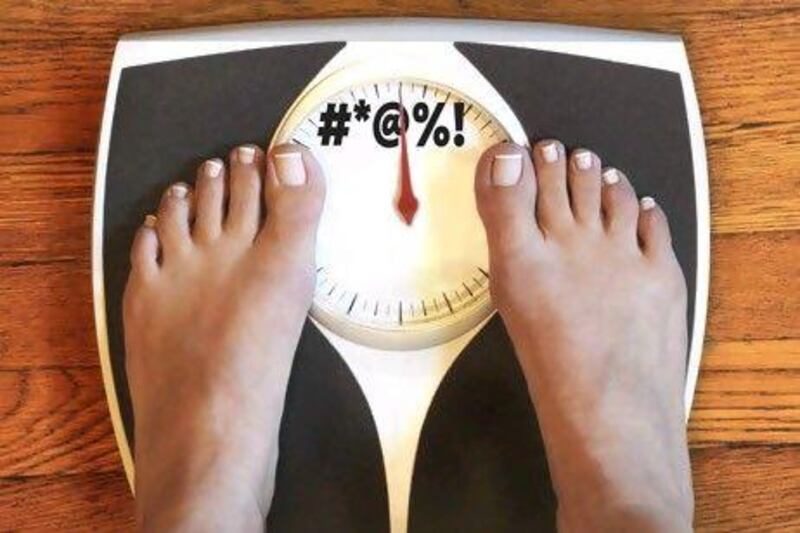Coffee-bean extract, cabbage powder, hunger-stifling sprinkles. Not a day seems to pass when there isn't a new "miracle" weight-loss food product released on to the market. So which, if any, of these weight-loss supplements live up to their promise - and what fast-thinning potions should be given a very wide berth?
One recent revelation in the world of weight-loss supplements has been raspberry ketone, as espoused by the TV weight-loss guru Dr Mehmet Oz. In the US, raspberry ketone capsules have flown off the shelves - at US$18 (Dh66) a bottle - in response to the claims that they encourage the body to burn up fat and that users can "see results in just five days".
While the US Food and Drug Administration has at least passed the capsules as "safe to consume", you may want to look a little harder at the evidence for its true weight-loss worth.
As yet, no creditable trials for raspberry ketone have been carried out. The only notable studies to feature it were done on laboratory mice which were deemed to be "less likely to gain weight" after the capsules were added to their diet.
Green coffee bean extract - made from unroasted beans - has also received a similar fanfare of publicity amid claims that it can speed up weight loss.
But again it is worth waking up and smelling the coffee before buying into this. The magic mixture made a splash this year after one study cited how subjects taking it lost 16 pounds (7 kilograms) on average when compared to those in a placebo group.
However, the study has since been criticised for involving only one small group and being funded by Applied Food Sciences - a company that manufactures green coffee bean extract. Additional independent trials suggest that at its best, green coffee extract can have only a moderate effect on weight loss.
Other "fat-burning" foods to have hit the headlines this year include apple peel (said to help fight obesity, though only in mice), a molecule found in some types of milk called nicotinamide riboside which could help mice (again) that are on a high-fat diet gain less weight, and the oil of wild almond seeds - though, again, no human trial evidence exists.
Why do we fall for these claims? "It's because many of us believe that we will uniquely respond to a particular supplement - when what's really called for is more dramatic lifestyle changes," says Dr Sarah Schenker, a UK-based registered dietician (www.sarahschenker.com). "It's in our nature to seek out a quick fix to an issue like being overweight, but the reality is that these products promise so much yet deliver so little.
"Many supplements are caffeine-based and use studies that link caffeine intake to a raised resting metabolic rate as a means of justifying their 'fat-burning' credentials. But the reality is that while caffeine does raise the metabolism a little in some of us, it's nowhere near enough to have any significant impact upon the calories we burn."
In June this year, a University of Copenhagen study suggested that a new seaweed-based fibre supplement, taken before meals, helped people to lose weight. But in the same month, a review of evidence published in the International Journal of Sport Nutrition and Exercise Metabolism dashed the hopes of those trying to find a magic weight-loss pill. Oregon State University researchers reviewing several hundred weight-loss supplement studies concluded that no research evidence exists that any single product results in significant weight loss - and in some cases they can actually have detrimental health effects. Yet, we still buy them.
The Oregon State study, carried out by Melinda Manore, cast doubt on many of the claims emanating from the billion-dollar weight-loss supplement industry.
"So many of these claims are based upon small studies carried out on laboratory mice," says Schenker. "Mice don't visit fast food restaurants or spend too long sitting around all day, so these studies bear no relevance to the lifestyles of the people taking the supplements."
Some food specialists also point to the fact that there are now more weight-loss supplements available than ever before - and more obese people than ever before - as proof of their ineffectiveness. "The supposed evidence for products like raspberry ketones is very suspect," says the nutritionist Anita Bean (www.anitabean.co.uk), who cites the fad for celebrity diets as a reason why supplements sell so well. "A celebrity drops a couple of dress sizes through exercise combined with calorie control and sensible eating, but then puts their name to a supplement and endorses it - that's often how these things hit the headlines, but their true worth when it comes to weight loss is usually nothing.
"Very few, if any, of these supplements have been subject to randomised clinical trials, and even more worrying is the fact that some of them list side effects such as nausea, sleep loss and dizziness," says Bean.
Sensible moves
No one food is magical," says Lovely Ranganath, a senior nutritionist with Healthtrendz at the Dubai World Trade Centre. "When doing your shopping, consider those healthy foods that you like or can learn to like, that are available and that are within your means." Also learn about the glycaemic index of carbohydrates. "Research is still ongoing, but evidence suggests that understanding the different rates at which carbs are digested may be a useful tool in the fight against obesity," says Ranganath.
When and how you eat is vital. "It's better to 'graze', eating little and often, than to 'gorge', as far as your blood sugar is concerned. Drinking water ahead of a meal and having soup at the start of a meal are evidence-backed behaviour-modification strategies that have been shown to help weight loss.
"Personal attitude is also extremely important … changing diet and exercise behaviours without attention to a person's self-concept invites failure. People who believe they can lose weight are more successful at losing weight than those who expect to fail."






